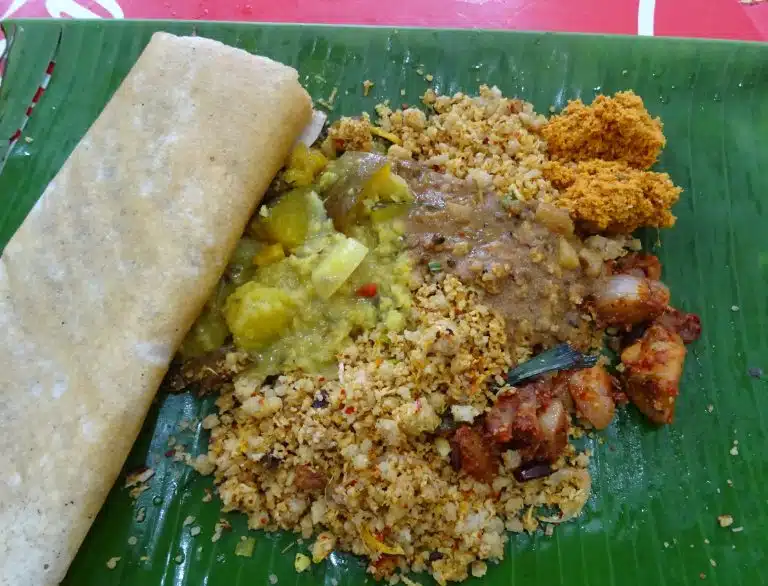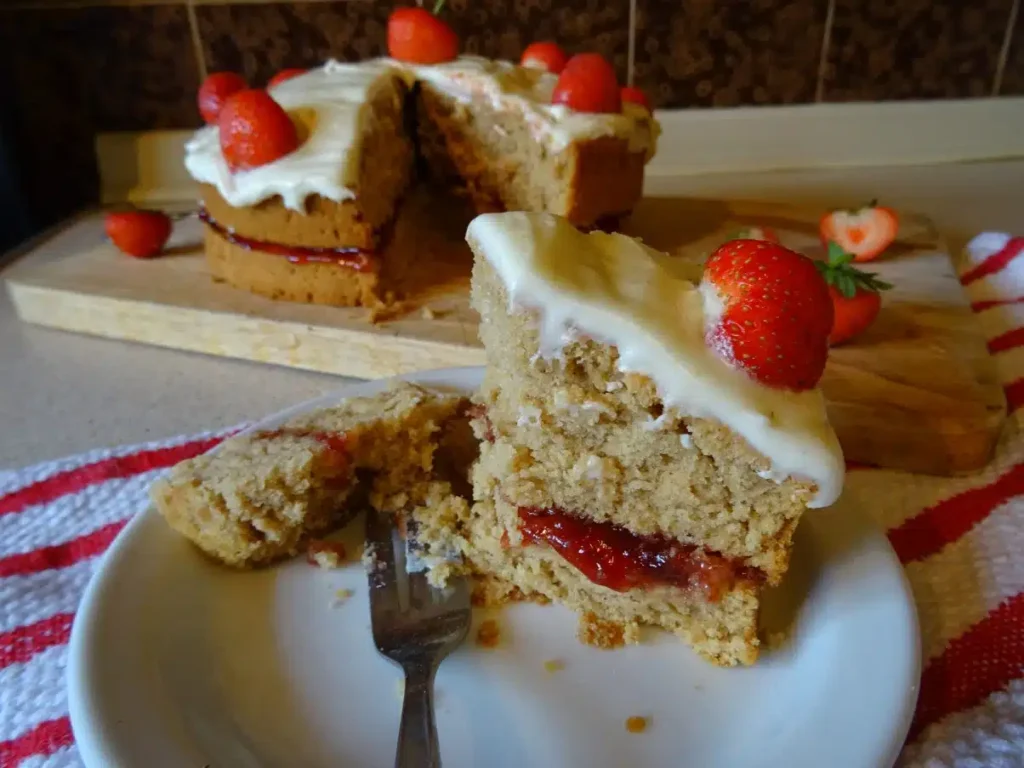Discover the Top 5 Vegan Protein Powders for 2024 Reviewed and Tested
Not so long ago, finding vegan protein powders was tough. Most protein brands used dairy and the vegan options that were available… well, there was definitely room for improvement!
Nowadays, there are so many awesome protein powders for vegans you really are spoiled for choice. The hard work is picking which one is for you.
And that’s where this guide comes in.
With protein being such a crucial ingredient to an active lifestyle, protein powders can be the perfect complement to a healthy diet.
Whether you have a quick protein shake after your climbing session, blitz it in your breakfast smoothie or add it to baked goods, it helps you recover and prepare for your next adventure.
Over the years, we’ve tried heaps of plant-based protein powders and wanted to put together a guide that would share some info and help you pick the right one.
Product
Description
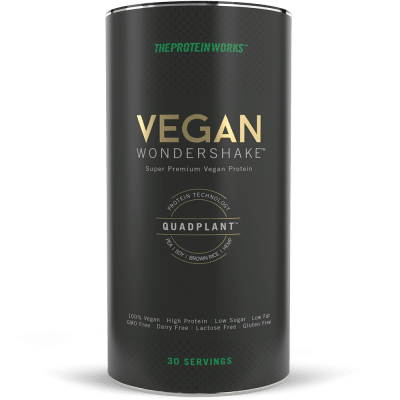
ALL-ROUND PERFORMANCE
The Protein Works Wondershake (Banana)
Why we like it: Smooth, creamy texture with high protein content.
Price: Mid-range
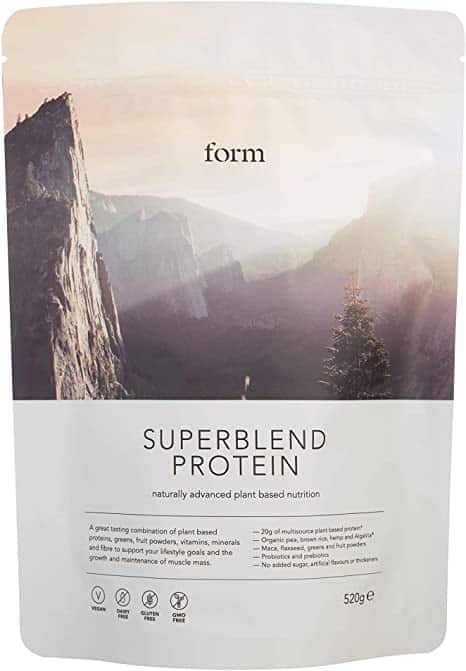
BEST TASTING
Form Superblend (Chocolate & Salted Caramel)
Why we like it: Rich, delicious flavor with added superfoods for a nutritional boost.
Price : Upper end

BEST FOR WEIGHT LOSS
REFLEX Nutrition (Vanilla Bean)
Why we like it: High protein, low carbs; great with water or milk, perfect for weight management.
Price : Mid-range
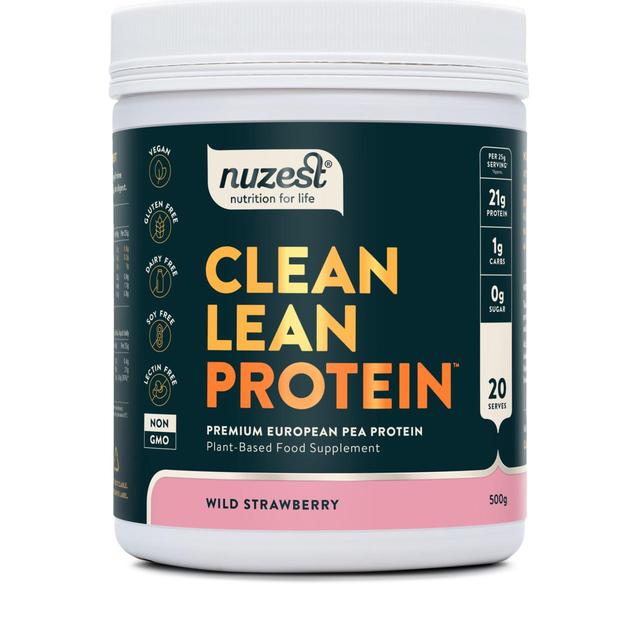
BEST FOR LOW CARB
Nuzest Clean Lean Protein
Why we like it: Low carb content and smooth mixability, ideal for carb-conscious individuals.
Price: Upper end
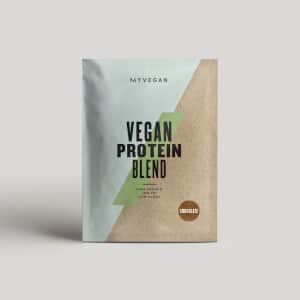
BEST FOR VERSATILITY
MyVegan Vegan Protein Blend
Why we like it: Versatile with heaps of flavors and impressive nutritional profile.
Price: Mid-range
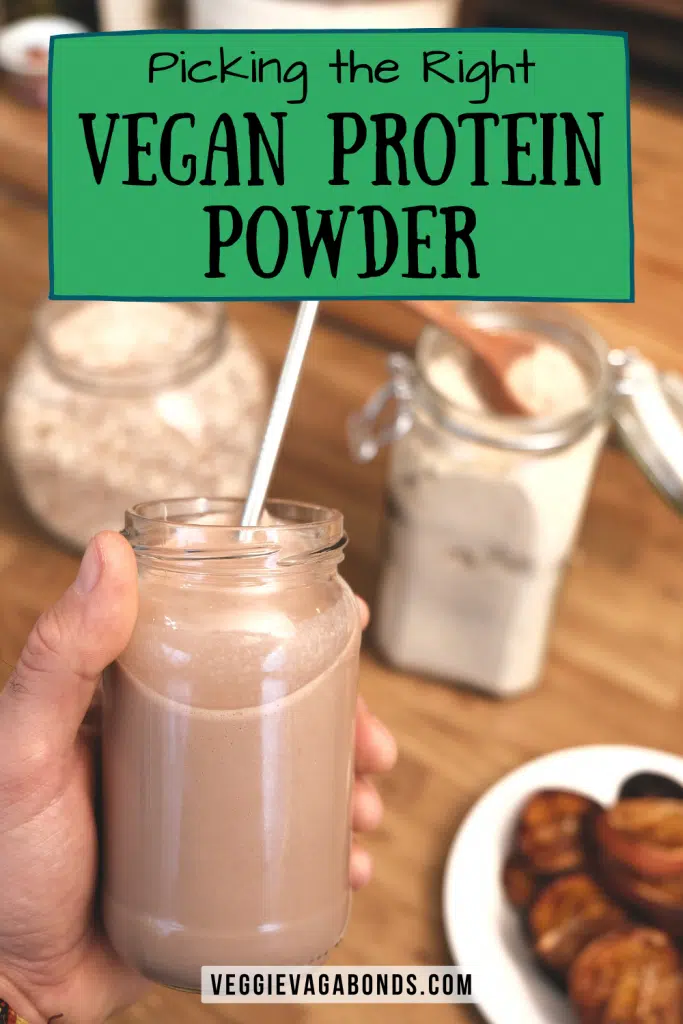
Our favourite vegan protein powders
Over the years we’ve really done the rounds with the protein powders. Sarah and I both have different tastes and requirements so we’ve tried quite a variety!
All the powders listed below we’ve personally used.
They’ve all been used for shakes with water and milk (unsweetened oat milk), and most have been used in smoothies, porridge and some kind of baking too.
A note on flavours: many brands offer heaps of different flavours (get it, heaps…) however we typically go for vanilla, banana or something subtle to go better in smoothies and porridge.
This list will be updated with all the new products we try so it can be the most useful to you. Sign up for our newsletter below to keep in the loop!
Nutrition: for each protein, we’ve added nutritional info per 100g not per serving. Each brand has different serving recommendations.
The Protein Works Wondershake (Banana)
The vegan Wondershake has a super impressive amount of protein (one of the highest you’ll find) with low carbs and sugar. It mixes easily and is very yummy with milk, smooth and creamy. With water, it’s also nice and the banana flavour comes out more. This is a pretty versatile option because you can have great tasting protein shakes but it’s also not too strong for other uses. And all that protein makes it awesome for recovery after heavy exercise! The Protein Works have dozens of different vegan protein blends and flavour combinations.
Price: Mid-range

Details
- Protein type
- Pea, soy, hemp and brown rice blend
- Dietary Info
- Gluten and GMO-free
- Serving Size
- 1 scoop (25g)
- Servings
- 30
- Nutrition per serving
- Calories:94 kcal Carbs:1.9g Fiber:0.3g Sugar:0g Protein:20g Fat:0.6g
VV Rating
Per 100g: 375 calories / 7.5g carbs (0.2g sugar) / 80g protein / 2.6g fat (0.9g saturated)
Who is it good for
Ideal for fitness enthusiasts, diet-conscious individuals, vegans, and those seeking a convenient, high-protein, low-calorie shake with great taste and smooth texture. Perfect for on-the-go nutrition and post-workout recovery.
Best for All-round Performance
Form Superblend (Chocolate & Salted Caramel)
If you’re looking for the best tasting plant-based protein powder, this is it! Damn, these shakes taste SO good. They’re rich, creamy, and smooth, with the salted caramel coming through just right. With milk, the flavor is strengthened but isn’t too rich. It’s a really full flavor so we didn’t use it for much cooking or smoothies but it really is perfect for shakes. The Superblend has a lower protein serving but adds green nutrients and superfoods. It’s massively enjoyable to drink, basically like a really healthy vegan milkshake. To top it off, Form is a B-Corp company which is great!
Price: Upper end

Details
- Protein type
- Pea, brown rice & hemp
- Dietary Info
- Added fiber and superfoods, GMO, Soy and gluten-free
- Serving Size
- 2 Tablespoons (40g)
- Servings
- 13
- Nutrition per serving
- Calories: 158 kcal, Carbs: 4.3g, Fiber: 8.1g, Sugar: 1.5g, Protein: 20 g, Fat: 5g, Saturated Fat: 0.8g
VV Rating
Calories: 396 kcal, Carbs: 10.8 g, Fiber: 20.3 g, Sugar: 3.8 g, Protein: 50 g, Fat: 12.5 g, Saturated Fat: 2 g
Who is it good for
Ideal for those seeking a delicious, creamy shake with added nutritional benefits. Perfect for vegans and anyone wanting a high-quality, great-tasting protein supplement. Ideal for post-workout recovery and as a tasty snack.
Best Tasting
REFLEX Nutrition (Vanilla Bean)
High protein, low carbs, and really great just with water – a good option for losing weight. Having these shakes with water is surprisingly creamy and rich, it’s pretty awesome (though I do think you need slightly more water than their recommended servings). With milk, it’s even creamier but not overdone, so smoothies and porridge are definitely a go-go. We found mixability wasn’t as great for shakes, so it’s another reason to perhaps opt for the blender. If you want a vegan protein powder for weight loss, this is a good choice. The carb and calorie content is low, plus you can ditch the milk and enjoy it just with water.
Price: Mid-range

Details
- Protein type
- Pea, brown rice, organic pumpkin
- Dietary Info
- 9 essential amino acids, high B12
- Serving Size
- 2 Tablespoons (30g)
- Servings
- 20
- Nutrition per serving
- Calories: 106 kcal, Carbs: 1.1g, Fiber: 1.5g, Sugar: 1g, Protein: 21g, Fat: 1.7g, Saturated Fat: 0.4g, Salt: 1.7g
VV Rating
Calories: 354 kcal, Carbs: 3.5 g, Fiber: 5 g, Sugar: 3.2 g, Protein: 70 g, Fat: 5.5 g, Saturated Fat: 1.4 g, Salt: 5.7 g
Who is it good for
Ideal for fitness enthusiasts and those seeking a high-protein, low-carb option. Great for vegans and anyone aiming for weight management or muscle recovery, especially when mixed with water or plant-based milk.
Best for Weight Loss
Nuzest Clean Lean Protein
Big protein, low carbs – perfectly adding a protein punch into your lifestyle. The two main things we really like about the Clean Lean Protein are the flavors – it comes in some awesome options, including chai turmeric! – and the mixability, as it foams up creamy and delicious.
With the low carb content, this is a good option if you’re just wanting to add some protein to your diet without worrying about additional carbs. It’s easy to drink, light, and has great digestibility. Altogether, it means it’s a nice protein to take on the go or ready for your work break to fuel your active lifestyle.
Price: Upper end

Details
- Protein type
- Pea protein
- Dietary Info
- 9 essential amino acids
- Serving Size
- 2 scoops (25g)
- Servings
- 20
- Nutrition per serving
- Calories: 99 kcal, Carbs: 2g, Fiber: 0.5 g, Sugar: 0.1g, Protein: 18g, Fat: 2g, Saturated Fat: 0.5g
VV Rating
Calories: 394 kcal, Carbs: 8 g, Fiber: 2 g, Sugar: 0.3 g, Protein: 72 g, Fat: 8 g, Saturated Fat: 1.9 g
Who is it good for
Perfect for those on a low-carb diet looking for a high-quality, easily digestible protein powder that blends well and supports muscle recovery.
Best Low Carb
MyVegan Vegan Protein Blend
A super versatile option with heaps of flavours and an impressive nutritional profile. It’s awesome to see that the protein offerings to vegans have grown so much that MyProtein, one of the biggest protein powder companies, have created their own completely vegan brand, MyVegan!
The Vegan Protein Blend is a great choice as an all-rounder with a low calorie content. The flavours are tasty but not overdone, it mixes well and works nicely in smoothies or porridge. I like that the sugar content is low and also that you’ve got a good amount of calories/carbs to power you through the day.
Price: Mid-range

Details
- Protein type
- Pea and fava bean
- Dietary Info
- BCAAs, essential amino acids
- Serving Size
- 1 scoop (30g)
- Servings
- 33
- Nutrition per serving
- Calories: 108 kcal, Carbs: 3.3g, Fiber: 1.4g, Sugar: 0g, Protein: 21g, Fat: 0.8g, Saturated Fat: 0.2g
VV Rating
Calories: 360 kcal, Carbs: 11 g, Fiber: 4.5 g, Sugar: 0 g, Protein: 71 g, Fat: 2.5 g, Saturated Fat: 0.5 g
Who is it good for
Ideal for fitness enthusiasts, vegans, and those seeking a high-protein, low-calorie shake that mixes well with water or plant-based milk. Perfect for smoothies, porridge, and post-workout recovery.
Best Low Carb
1. What is protein and why do you need it?
Active or idle, vegan or not, we all need protein. Protein contains essential amino acids, which are the building blocks for growth and recovery. They give us the energy to go kick ass too.
It keeps you feeling fuller for longer, makes your bones and muscles stronger, boosts metabolism and lowers cholesterol.
If you’re going to be leading an action-packed lifestyle, getting the right amount is crucial to keep you fit, healthy and safe outside.
Oh, and protein helps burn fat and aids weight loss too, if that’s what you’re going for.
AMINO ACIDS? These guys are the building blocks of protein and there are 22 different types. Most are already found in the body but we need to consume 9 of them from food. Any foods that have all 9 essential amino acids are called complete proteins. Vegan complete protein food examples are tofu, quinoa and a serving of rice with beans.
2. How much protein do you need?
This is a contested topic but most agree it’s around 0.75g of protein per kilo of body weight. That means someone weighing 70kg (154 lbs) should be eating roughly 52g of protein a day.
Obviously, an active person will need to consume more and it’ll depend on your lifestyle. Listen to your body!
Just for context, your average can of drained chickpeas (240g) contains roughly 20g of protein. So, a 70kg person needs to consume roughly 2.5 cans of chickpeas to hit their protein quota.
Remember, if you’re doing lots of crazy stuff outside, have an active job or do anything else which exerts a lot of energy, you will likely need more!
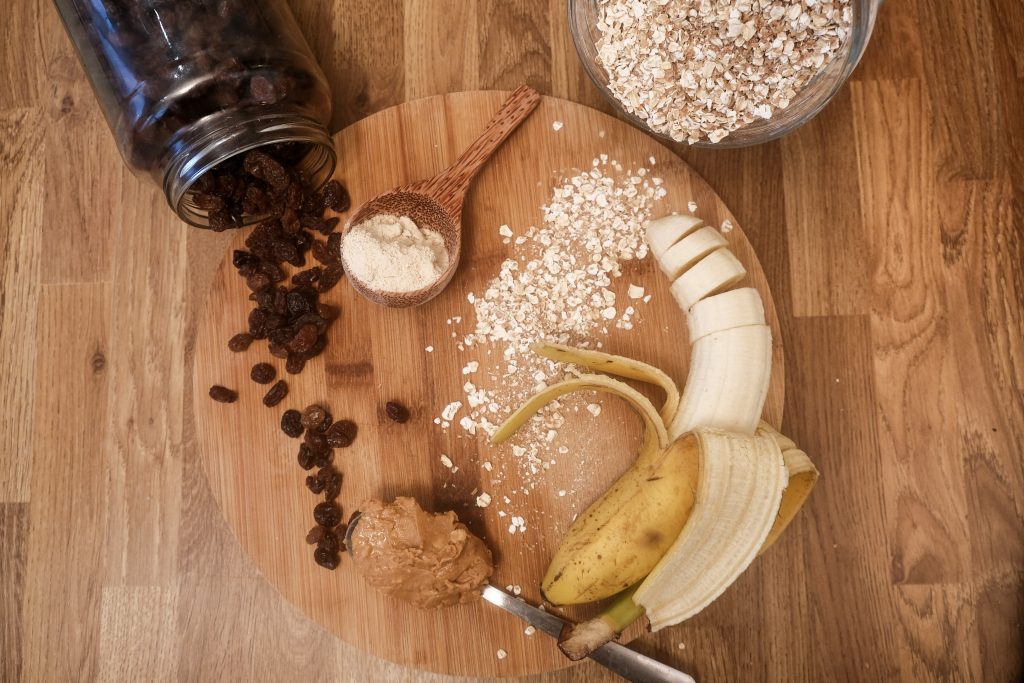
3. Why go for protein powder?
Let’s face it, for most, it’s not so easy scoffing 2.5 tins of chickpeas a day.
With a high-energy, busy schedule, where mealtimes and nutrient intake can change every day, a plant-based protein powder can be the quickest, easiest and cheapest way to guarantee you’re getting enough of this crucial macronutrient.
You can chuck it into a morning smoothie or porridge, bake some awesome protein dishes or take the powder with you to have on the go. A lot of plant protein powder is also packed with other useful nutrients too.
It’s always important to make sure you’re eating a balanced diet with high-protein vegan foods, then protein powder makes a sweet addition.
It can be the best vegan muscle building supplement that aids recovery, and, if I’m honest, some are just damn tasty…
OUR INSIGHT: We’re not nutritionists or sport science experts but we are outdoor-crazed, pretty damn fit, have never eaten meat (J) and have both been vegan for the last 6+ years. We both massively notice our performance and energy levels increase when we’re topping up our diet with protein powder.
TIP FOR ADVENTURERS: Gram-for-gram, protein powder can be one of the most complete food sources you can get for its weight. If you’re going backpacking, cycle touring or on any multi-day adventures, protein powder is one of the lightest and easiest ways to help your body recover.
4. What is in vegan protein powder?
Protein, duh!?
I joke… traditionally, powders were made using dairy extracts, with whey protein and casein protein being the most common types. Then flavouring and other elements are added.
Vegan-friendly protein powder is exactly the same but extracts protein from plant-based sources, like soy or hemp. We’ll get onto the different types further down.
Fortunately, protein powders are leading the way with nutritional information and vegan products are very clearly labelled (thank you protein creators!).
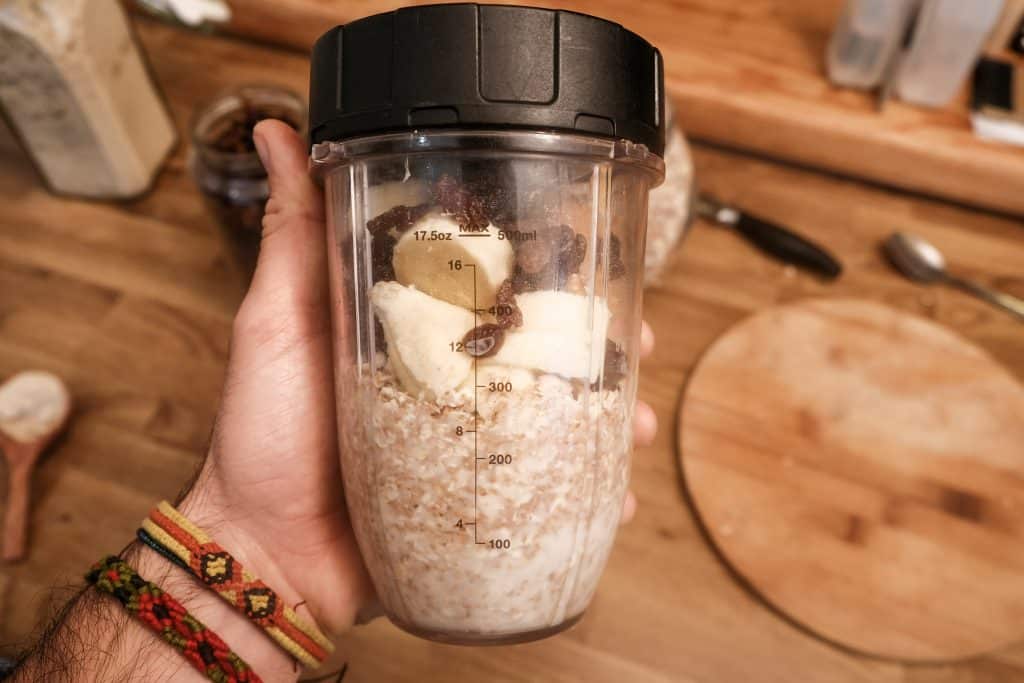
5. How to use protein powder, recipes and ideas
Though protein shakes are the most common, there are heaps of different ways you can use protein powder day-to-day.
I. Protein shakes
You do need to consume protein throughout the day but your body is most hungry for it after exercise.
It’s widely recommended to have protein within an hour of cooling down, to aid your body with recovery.
This is where the vegan protein shake shines!
You can take a serving with you, add water or milk and have it on-the-go. I like to have it straight after hard trail runs or climbing sessions and we also take it camping.
II. Smoothies
An awesome way to start your day is with a good protein smoothie. I blend this up first thing to either have at home or take in a beaker on-the-go.
Vegan protein smoothie recipe
- Plant milk 350 ml (I like non-sweetened oat milk) – 150 calories, 18g carbs, 8g protein
- 1 scoop of protein powder – 89 calories, 1.3 g carbs, 21g protein
- 1 banana – 100 calories, 23g carbs, 1g protein
- Oats (oatmeal) 1 cup – 218 calories, 28g carbs, 9g protein
- Peanut butter 1 tbsp – 94 calories, 3g carbs, 4g protein
- Raisins 30 g – 90 calories, 23 carbs
Total nutritional value: 43g protein / 745 calories / 96g carbs
III. Porridge
If I’ve got a bit more time, or we’re camping, porridge is the breakfast of choice and the ultimate vegan energy food. It has similar ingredients to the smoothie but cooked in the pot.
Vegan protein porridge recipe (for two!)
- 1 and a half cups of oats – 190 calories, 32g carbs, 8g protein
- Enough water to cover the oats by 1 cm
- 1 banana – 100 calories, 23g carbs, 1g protein
- 1 scoop protein powder – 89 calories, 1.3 g carbs, 21g protein
- 50 g raisins – 130 calories, 38g carbs
- 1 tbsp maca powder
- 40 g mixed flaxseeds and sunflower seeds – 200 calories, 11g carbs, 7g protein
Total nutritional value: 37g protein / 709 calories / 105g carbs
The world is your (vegan) oyster!
There are plenty of other ways you can incorporate protein powder into food – get creative!
Do you have any vegan recipes using protein powder that you love?
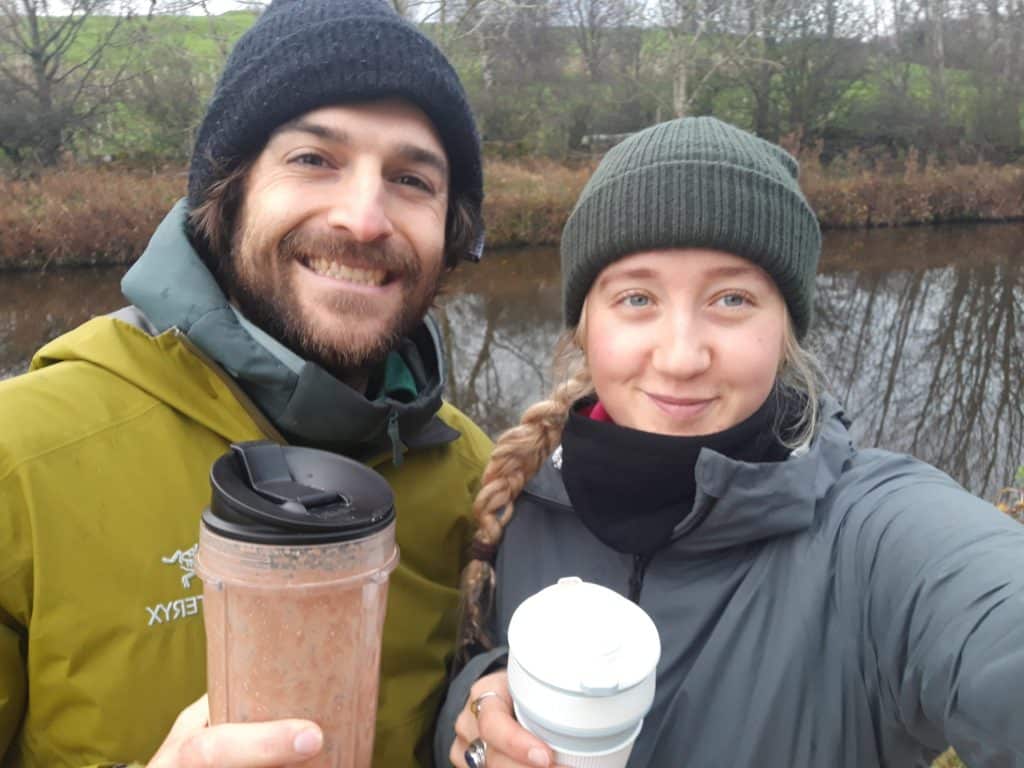
6. Different types of protein powders for vegans and what to look for
We weren’t joking when we said how many different vegan protein powders have emerged, with options for every lifestyle and need, plus dozens of flavours to boot.
Some of them will be more suited to you than others and these are some of the main types.
I. Different plant-based protein sources
There’s more protein in plants than you might think! These are some of the common sources:
- Pea protein – high protein content per serving and also contains BCAAs (branched-chain amino acids) which are great for muscle repair
- Brown rice protein – often cheaper and easily digestible
- Soy protein – a complete source of protein, high in BCAAs and easy to find but some people have intolerances to it (opt for GM-free soy!)
- Pumpkin seed protein – full of nutrients and healthy fats but lower in protein gram-for-gram
- Sunflower seed protein – high in fibre and good for a gut cleanse but low in BCAAs
- Chia seed protein – high in nutrients, fibre and antioxidants whilst being low in calories
- Alfalfa protein – good for lowering cholesterol and gives antioxidants
- Hemp protein – lower protein content but higher in other nutrients like fibre, zinc and iron
II. Vegan protein blends
As you can see, all the different types of protein sources have their own pros and cons. So, the clever protein developers create blends, giving you the benefits from each in one more complete protein package.
Most major protein brands will have vegan blends like this and they’re probably our favourite type too.
III. Low-carb protein powders
These might also be sold as weight loss protein powders and typically have very low calories and carbs.
They’re good if you’re just trying to add protein to your diet and nothing else, though to keep calories down they often use artificial sweeteners instead of sugar. Plus if you’re leading an active lifestyle, those calories are important to give your body fuel.
IV. Vegan meal replacement powders
As opposed to the option above, vegan meal replacement protein powders typically offer a good balance between calories, carbs and proteins.
As the name implies, they can be great meal replacements if you’re on-the-go and many brands add additional nutrients to give you a ‘complete meal’.
V. Vegan weight gainers
These guys often have very high protein, calorie and carb levels, with a single protein shake sometimes having more than 500 calories.
They’re perfect options if you’re trying to build muscle quickly or gain weight. Some shakes are almost like a dessert!
VI. Vegan protein powders with added nutrients
For an extra health kick, you’ll find a lot of plant-based protein add superfoods or nutrients. Things like B12, maca, spirulina, goji berries, iron, baobab, omegas, you name it. If it’s a trendy health food you’ll likely find a protein powder with it in.
VII. Raw, organic, GMO-free, gluten-free and more
To suit different health requirements and lifestyles, you’ll find things like organic vegan protein powder, raw, GMO-free, gluten-free etc. The variety really has grown over the years so you’ll likely be able to find just the right thing for your body.

7. Picking a protein powder
There’s no universal perfect option. Instead, you need to decide what protein powder is best for you, and these considerations can help.
- Do you have any nutritional requirements? Do you need something gluten-free, soy-free, organic etc.
- What are your physical goals? Are you trying to build muscle? If so, go for a high carb and protein mix. Trying to lose weight? Opt for less carbs. Trying to recover after heavy exercise? Try and get all essential amino acids, BCAAs and electrolytes.
- Do you just want a protein shake or more versatility? If you just want a shake, you could opt for something richer and tastier. If you’re planning on using protein powder in recipes perhaps a subtler option is better.
- Want an extra health-kick? Get a protein powder with less sugar but added superfoods or nutrients like B12 and fibre.
- Looking for an ethical protein powder? Opt for a brand that uses waste-free packaging.
8. Where to buy vegan protein powders
As we mentioned above, completely vegan powders are easy to find and clearly labelled.
To buy them and find more information your best bet is to look on the brand’s website.
In terms of buying options, most powders will come in a variety of different flavours and sizes. Typically, the larger quantity you buy, the cheaper it becomes per serving.
OUR ADVICE: If it’s your first time trying a product, don’t go for a 5kg bag straight away. Everyone has different tastes and it’s better to start small, find a product you really like and then save money with bulk discounts.
9. Protein questions answered
Does vegan protein powder cause gas?
Does protein powder give you spots?
Can you get vegan protein powder samples?
Can you get vegan whey protein?
Is all dairy-free protein powder vegan?
Will protein powder make you muscular?
Keep exploring…
The Best Vegan Hiking Boots & Buyer’s Guide
Find More Vegan Health and Nutrition Advice
Check Out Our World of Vegan Adventures
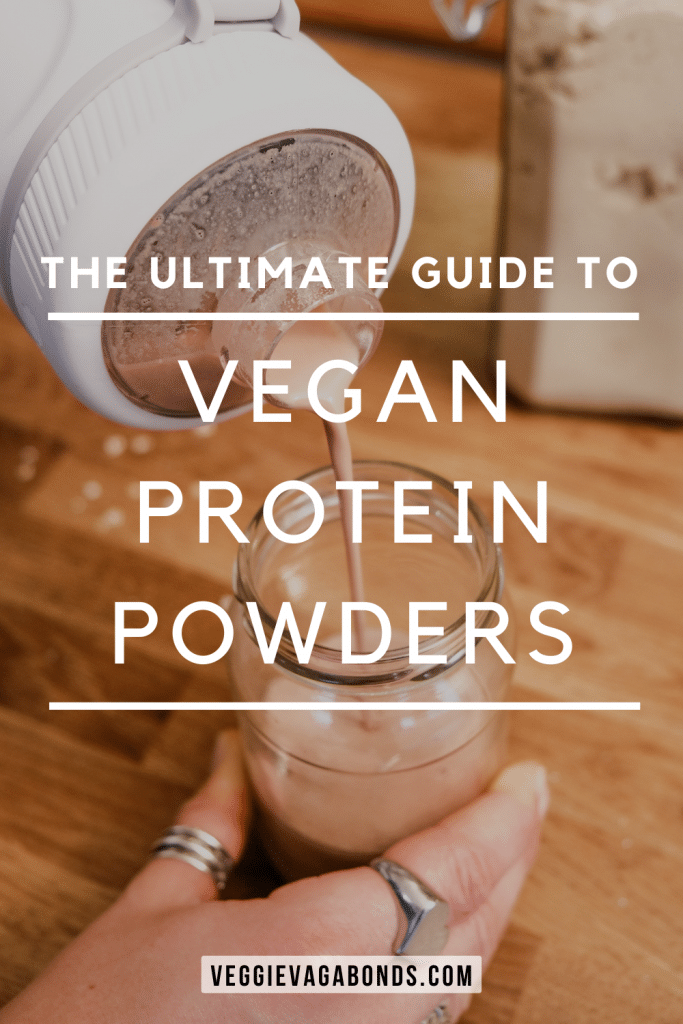
Picking the Best Vegan Protein Powder (Comparison, Recipes & Advice!)
I hope this article has been useful and it’s helped you find the right thing for you.
As always, if you’ve got any additional Q’s or want to suggest other awesome protein shakes for vegans, hit us up in the comments!


